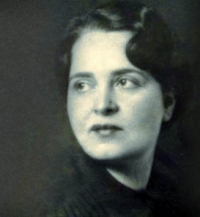Related Research Articles

Grazia Maria Cosima Damiana Deledda was an Italian writer who received the Nobel Prize for Literature in 1926 "for her idealistically inspired writings which with plastic clarity picture the life on her native island [i.e. Sardinia] and with depth and sympathy deal with human problems in general". She was the first Italian woman to receive the prize, and only the second woman in general after Selma Lagerlöf was awarded hers in 1909.

General Gabriele D'Annunzio, Prince of Montenevoso, sometimes written d'Annunzio as he used to sign himself, was an Italian poet, playwright, orator, journalist, aristocrat, and Royal Italian Army officer during World War I. He occupied a prominent place in Italian literature from 1889 to 1910 and in its political life from 1914 to 1924. He was often referred to by the epithets il Vate and il Profeta.
Luigi Malerba, born Luigi Bonardi, was an Italian author of short stories, historical novels, and screenplays. He has been part of the Neoavanguardia and co-founded Gruppo 63, a literary movement inspired by Marxism and Structuralism. Some of his most famous novels are La scoperta dell'alfabeto, The serpent, What Is This Buzzing, Do You Hear It Too?, Dopo il pescecane, Testa d'argento, Il fuoco greco, Le pietre volanti, Roman ghosts and Ithaca Forever: Penelope speaks. He wrote several stories and novels for kids, some of them in collaboration with Tonino Guerra.

Emilio Salgari was an Italian writer of action adventure swashbucklers and a pioneer of science fiction.

Giovanni Placido Agostino Pascoli was an Italian poet, classical scholar and an emblematic figure of Italian literature in the late nineteenth century. Alongside Gabriele D'Annunzio, he was one of the greatest Italian decadent poets.

Giovanni Papini was an Italian journalist, essayist, novelist, short story writer, poet, literary critic, and philosopher. A controversial literary figure of the early and mid-twentieth century, he was the earliest and most enthusiastic representative and promoter of Italian pragmatism. Papini was admired for his writing style and engaged in heated polemics. Involved with avant-garde movements such as futurism and post-decadentism, he moved from one political and philosophical position to another, always dissatisfied and uneasy: he converted from anti-clericalism and atheism to Catholicism, and went from convinced interventionism – before 1915 – to an aversion to war. In the 1930s, after moving from individualism to conservatism, he finally became a fascist, while maintaining an aversion to Nazism.

Giuseppe "Beppe" Fenoglio was an Italian writer, partisan and translator from English. The works of Fenoglio have two main themes: the rural world of the Langhe, where he was born and raised, and the Italian resistance movement, both largely inspired by his own personal experiences in them; equally, the writer has two styles: the chronicle and the epos.
Canace is a verse tragedy by Italian playwright Sperone Speroni (1500–1588). It is based on the Greek legend of Canace, the daughter of Aeolus, who was forced by her father to commit suicide for having fallen in love with her brother, Macar.
William V. Ranous was an American silent film actor and director and Shakespearean stage actor.

Rossiter Johnson was an American author and editor. He edited several encyclopedias, dictionaries, and books, and was one of the first editors to publish "pocket" editions of the classics. He was also an author of histories, novels, and poetry. Among his best known works was Phaeton Rogers, a novel of boyhood in Rochester, New York, where Johnson was born.
Dora is a female name of Greek origin, being a shortened form or derived from Dorothea (Dorothy) and Theodora, meaning "gift" or in its full form "god's gift", from δῶρον, doron, "gift" + θεός, theos, "god". The name Dora can also be a short form of Isadora (Isidora). Doreen, Dorian, and Dorinda are other examples of names from the same root form.

Frances Winwar(néeFrancesca Vinciguerra; 3 May 1900 – 24 July 1985), was a Sicilian-born American biographer, translator, and fiction writer.

Giuseppa Iolanda Menichelli, known professionally as Pina Menichelli, was an Italian actress. After a career in theatre and a series of small film roles, Menichelli was launched as a film star when Giovanni Pastrone gave her the lead role in The Fire (1916). Over the next nine years, Menichelli made a series of films, often trading on her image as a diva and on her passionate, decadent eroticism. Menichelli became a global star, and one of the most appreciated actresses in Italian cinema, before her retirement in 1924, aged 34.

Halcyon is the title of a collection of 88 poems by Italian poet Gabriele D'Annunzio, written between 1899 and 1903, and published in 1903. It was intended as the third volume of a seven-book work called Laudi del cielo, del mare, della terra e degli eroi which was subsequently interrupted in 1912 with only four volumes published: Maia, Elettra, Halcyon, and Merope.

Giada Trebeschi is an Italian author of historical fiction, thrillers, theater plays and screenplays. Her novels being based on true historical events touch various topics and periods. In addition she publishes some very short stories on her blog in English and Italian.
The Fire is a 1916 Italian silent film directed by Giovanni Pastrone. It is loosely based on the novel The Flame by Gabriele D'Annunzio.
The Intruder is an 1892 novel by the Italian writer Gabriele D'Annunzio. It is known as The Victim in the United States. It tells the story of the dandy Tullio Hermil who is habitually unfaithful to his patient and loving wife Giuliana, until the wife eventually does the same and becomes pregnant with another man's child. The book was published in English in 1897, translated by Georgina Harding.

Giovanni Episcopo is an 1891 novel by the Italian writer Gabriele D'Annunzio. It tells the story of a poor Italian clerk who is humiliated by his wife and a dominant co-worker. It was D'Annunzio's second novel. It took inspiration from Russian writers such as Fyodor Dostoyevsky.

Dora Knowlton Ranous was an American actress, author, editor, translator, and book reviewer. She began her literary career editing educational books and contributing to Appleton's Annual Cyclopaedia and The Criterion. Ranous attained distinction as a translator of French and Italian classics, and among the books rendered into English by her, either alone or in collaboration with Dr. Rossiter Johnson, whom she assisted, are The Literature of Italy, The Immortals, a collection of French works published under the sanction of the Académie Française; Guy de Maupassant's stories in fifteen volumes, and Gustave Flaubert's writings in ten volumes. She wrote two books of her own, The Diary of a Daly Debutante and Good English in Good Form. A memoir entitled A Simple Record of a Noble Life, which included some of her unpublished work, appeared in 1916.

The Maidens of the Rocks is a novel by the Italian writer Gabriele D'Annunzio, published in 1895.
References
- 1 2 Meda, Anna (2007). "Il fuoco, 1900". Encyclopedia of Italian Literary Studies. p. 545. ISBN 978-1-57958-390-3.
- ↑ Encyclopedia of Literary Translation Into English: A-L. p. 336.